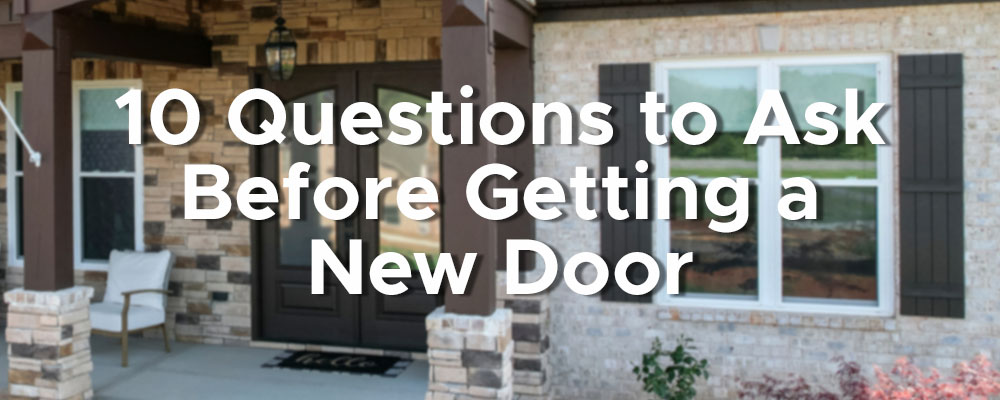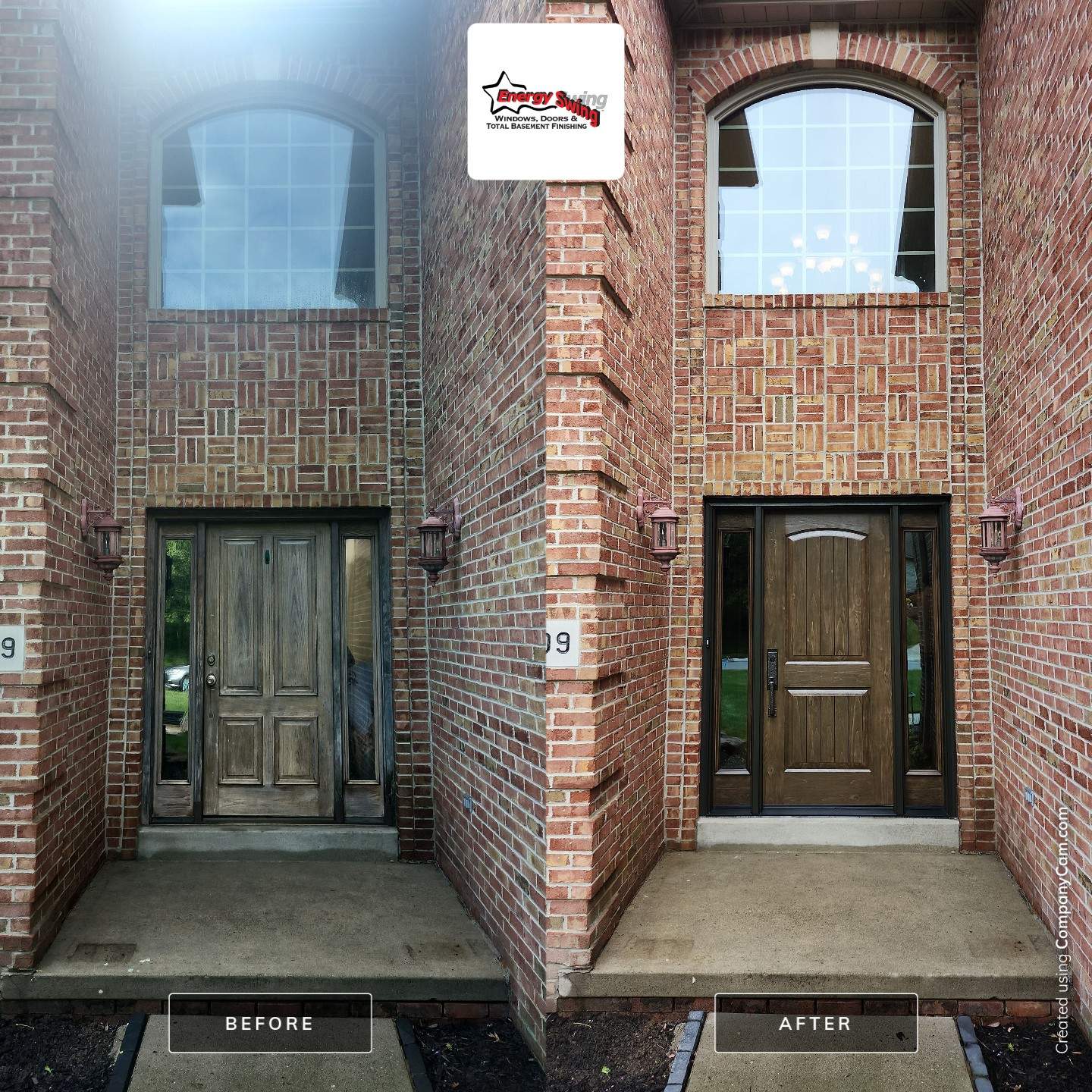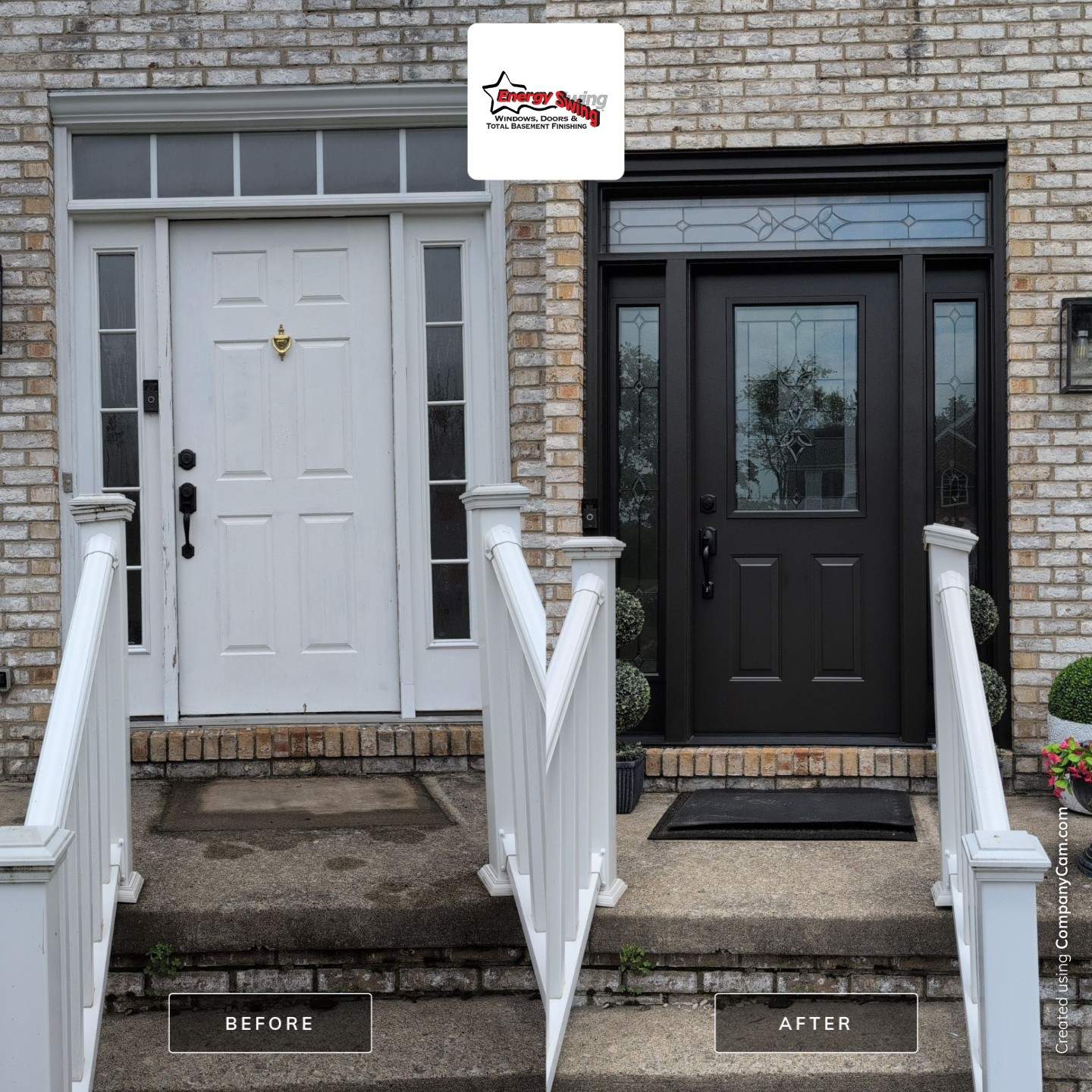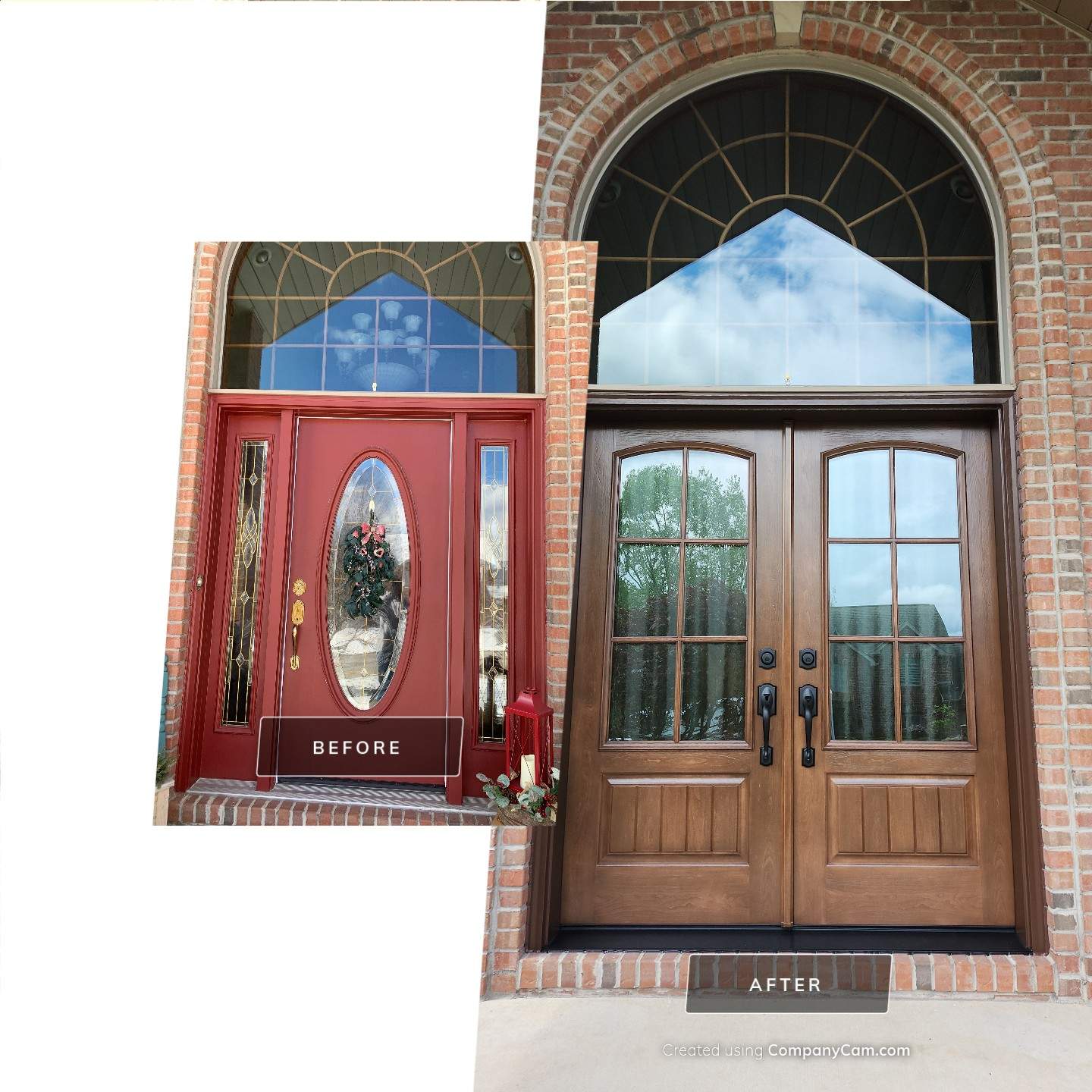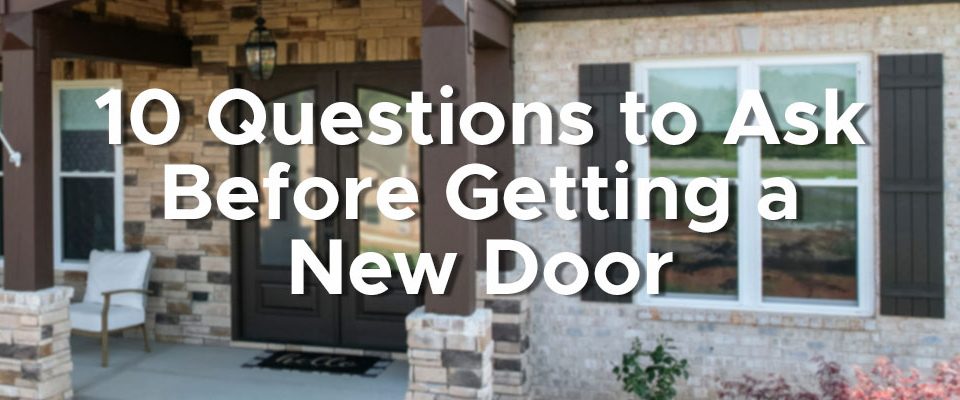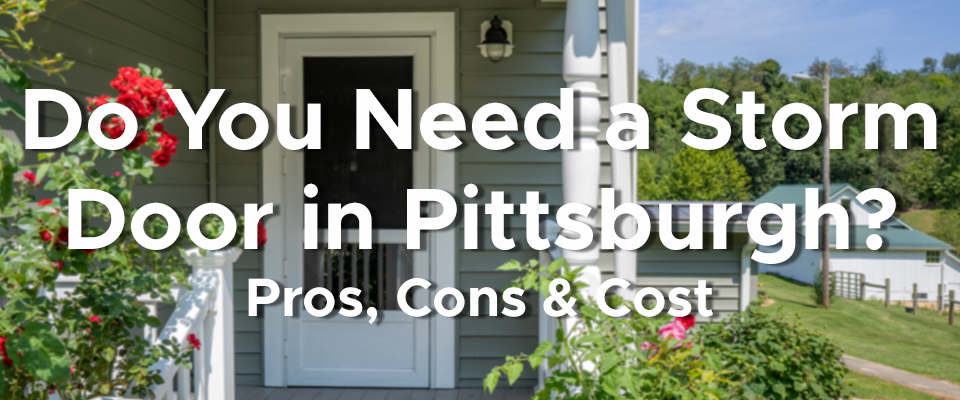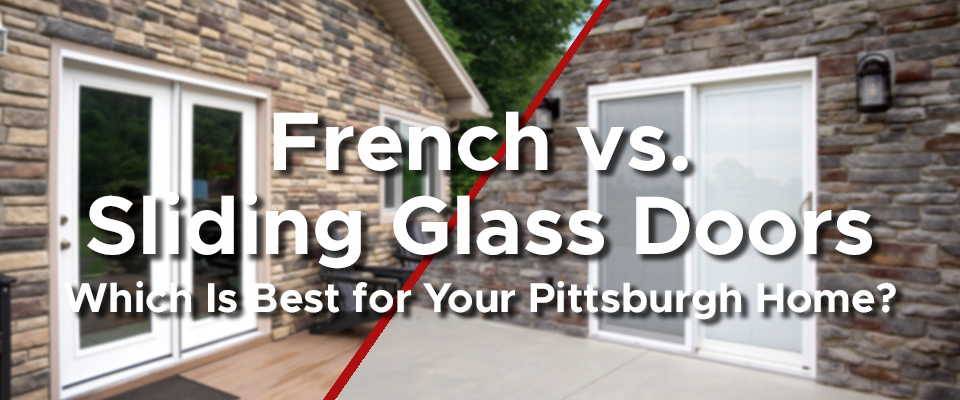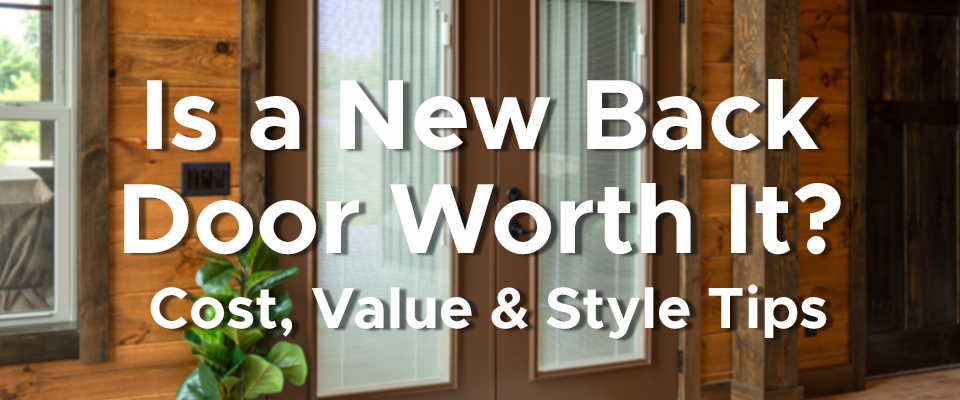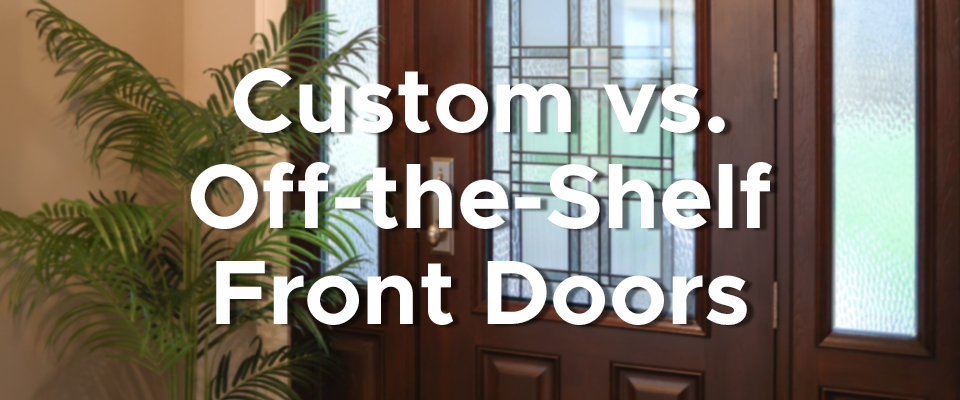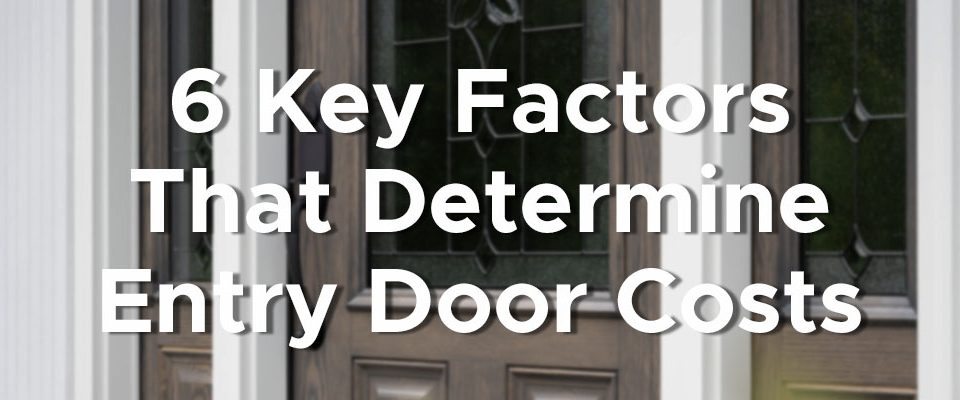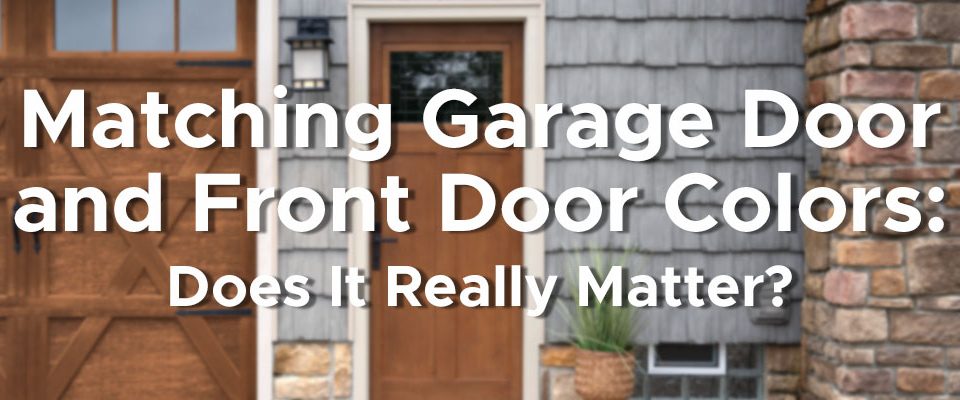Replacing your front or patio door might seem like a simple cosmetic upgrade, until you start getting quotes and realize there are a lot of details that need to be considered before getting the door of your dreams.
Too many homeowners rush into the process, only to regret their choice because it wasn’t built for our four-season climate, didn’t solve the right problem, or ended up costing more than expected.
At Energy Swing, we’ve installed thousands of doors across Western PA homes; from historic neighborhoods with custom openings to newer builds dealing with extreme humidity and freeze-thaw cycles. We’ve seen what works, what fails, and what almost always surprises first-time buyers.
This guide gives you the 10 essential questions to ask before choosing a new door so you can avoid costly mistakes, protect your investment, and feel confident every time you open or close your front door.
Key Takeaways for Pittsburgh Homeowners
- Not all entry doors are built for Pittsburgh’s climate — understanding the differences saves time and money.
- Fiberglass often delivers the best value in Western PA, balancing style, energy efficiency, and low maintenance.
- Custom sizing is common (and often necessary) for older homes in neighborhoods like Mt. Lebanon or Shadyside.
- A proper installation matters more than the door slab — ask the right questions to avoid costly do-overs.
Before You Start: Why Asking the Right Questions Matters
Choosing a new front or patio door might feel straightforward, until you realize how many options, materials, and hidden costs are involved. Whether you're focused on curb appeal, energy efficiency, or long-term durability, asking the right questions upfront can save you money, time, and frustration.
Let’s start with the most important one...
1. What’s the Main Reason I’m Replacing My Door?
Identifying your top priority makes the rest of the decision easier.
- Curb appeal: A new door can dramatically transform the look of your entire house
- Energy efficiency: Drafts in winter or warping in summer can drive up utility bills.
- Security: A sturdier door and better locking system offer peace of mind.
Start with clarity: Are you trying to improve comfort, safety, or style? Knowing your priorities will help guide your choices in materials, style, and budget.
Not sure if it’s time to replace your front door? Here are 5 clear signs Pittsburgh homeowners should watch for.
2. Which Front Door Materials Hold Up Best in Pittsburgh’s Weather?
Pittsburgh’s climate is tough. With humid summers, icy winters, and lots of rain, it’s important to consider what material will be best.
Pittsburgh homeowners usually choose between steel or fiberglass and in rare instances, wood. Each has trade-offs:
- Wood: Beautiful but swells in summer, shrinks in cold, difficult to weatherstrip creating a bad for seal
- Steel: Strong and secure but may dent or scratch more easily.
- Fiberglass: Best overall for Pittsburgh if you get high-quality lines
| Material | Pros | Cons | Price Range | Best For |
|---|---|---|---|---|
| Wood | Timeless beauty and classic curb appeal | Swells in summer, shrinks in cold; poorer sealing performance | $5,000 – $20,000+ | Historic homes or homeowners prioritizing aesthetics |
| Steel | Strong, secure, and cost-effective | Can dent or scratch more easily | $3,000 – $9,000+ | Budget-conscious homeowners wanting strength and security |
| Fiberglass | Best overall balance of durability, insulation, and low maintenance | Lower-quality lines can underperform | $4,000 – $15,000+ | Most Pittsburgh homeowners looking for long-term performance |
Pro tip: Not all fiberglass is equal. Higher-end options, like ProVia’s Signet line, are designed to withstand Pittsburgh’s temperature swings. Always check what grade you’re getting.
Trying to choose between steel and fiberglass? Compare these two door materials head-to-head.
3. What’s the Most Energy-Efficient Entry Door for My Pittsburgh Home?
With winters as long as ours, an inefficient door can cost you year-round. Look for:
- Energy Star® certification specific to our climate zone
- Foam-filled core insulation
- Quality weatherstripping and tight jambs on all four sides of the door (especially the bottom)
- Low-E glass coatings on large glass panels
Doors can account for up to 11% of heat-loss in American households. That’s noticeable during long, cold Pittsburgh winters.

4. What’s My Budget and What’s Actually Included?
A door project isn’t just the slab, it’s the full installation package. A complete door replacement usually covers:
- Full tear-out to the studs
- New jamb systems, sealing, and hardware
- Professional installation
Beware of low quotes. Sometimes they only swap the slab on old hinges, which won’t seal properly or last long. As pros often say: Are you buying your next door, or your last door?
5. Do I Need a Custom Door for My Pittsburgh Home?
Many Pittsburgh homes, especially in older areas like Mt. Lebanon or Shadyside, have non-standard openings. If that’s you, a custom-fit door saves time and money in the long run.
- Custom doors are often necessary in Pittsburgh’s older homes, where openings may be taller, shorter, or wider than today’s standard sizes.
- Stock doors are budget-friendly and work well for garages or newer homes with standard openings.
It’s usually cheaper long-term to size a custom door than to force a stock one to fit. Plus, your door will seal better and last longer and be less likely to have installation issues in the future.
Wondering if your home needs a custom-sized door? Here’s when to go custom vs. use a stock door.
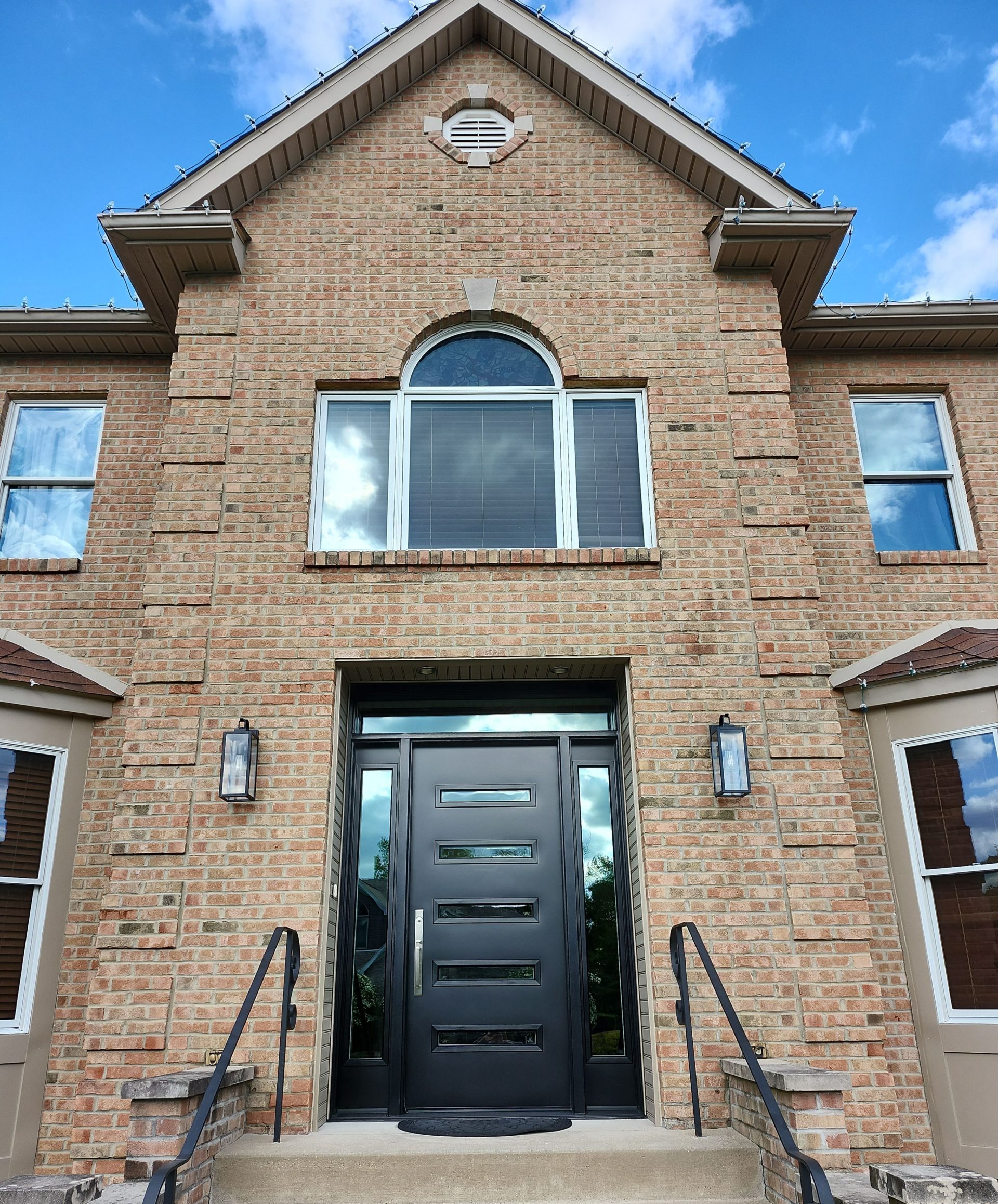
6. Which Door Style Fits My Pittsburgh Home’s Architecture?
Pittsburgh’s neighborhoods have a mix of historic and modern styles:
- A Victorian in Lawrenceville might call for something classic.
- A Craftsman bungalow in Mt. Lebanon pairs well with a craftsman-style door.
- A modern build in Cranberry may benefit from sleek, contemporary lines.
Consider how your door complements brickwork, siding, or stonework. You can also add decorative sidelites or glass accents to brighten a foyer without compromising on privacy.
7. How Secure Will My New Door Be?
Security is about more than a sturdy slab. Look for:
- Multi-point locks that secure the door at the top, middle, and bottom
- Reinforced strike plates and jambs for added strength against break-ins
- Options for glass doors, like double-cylinder deadbolts (though keep in mind fire safety concerns)
Peace of mind often comes down to the hardware and installation, not just the door itself.
8. Can I See My New Door In-Person or In a Digital Preview First?
Shopping from a catalog or screen can be risky. Colors and finishes often look different in real life. Before making a final decision, ask if you’ll be able to:
- See physical samples of materials, colors, and hardware in person
- Compare glass designs, thresholds, and jamb systems side by side
- Preview your new door digitally on a photo of your actual home (it’s really cool to see how the door you’re dreaming of will work with the architecture of your home).
- Make design changes confidently before placing your final order
These steps help Pittsburgh homeowners avoid costly surprises — like a red door clashing with your brick or glass that looks darker than expected.
Pro tip: Many local installers now use iPads or software to overlay your chosen design on a photo of your home exterior. It’s one of the best ways to feel confident before you buy.
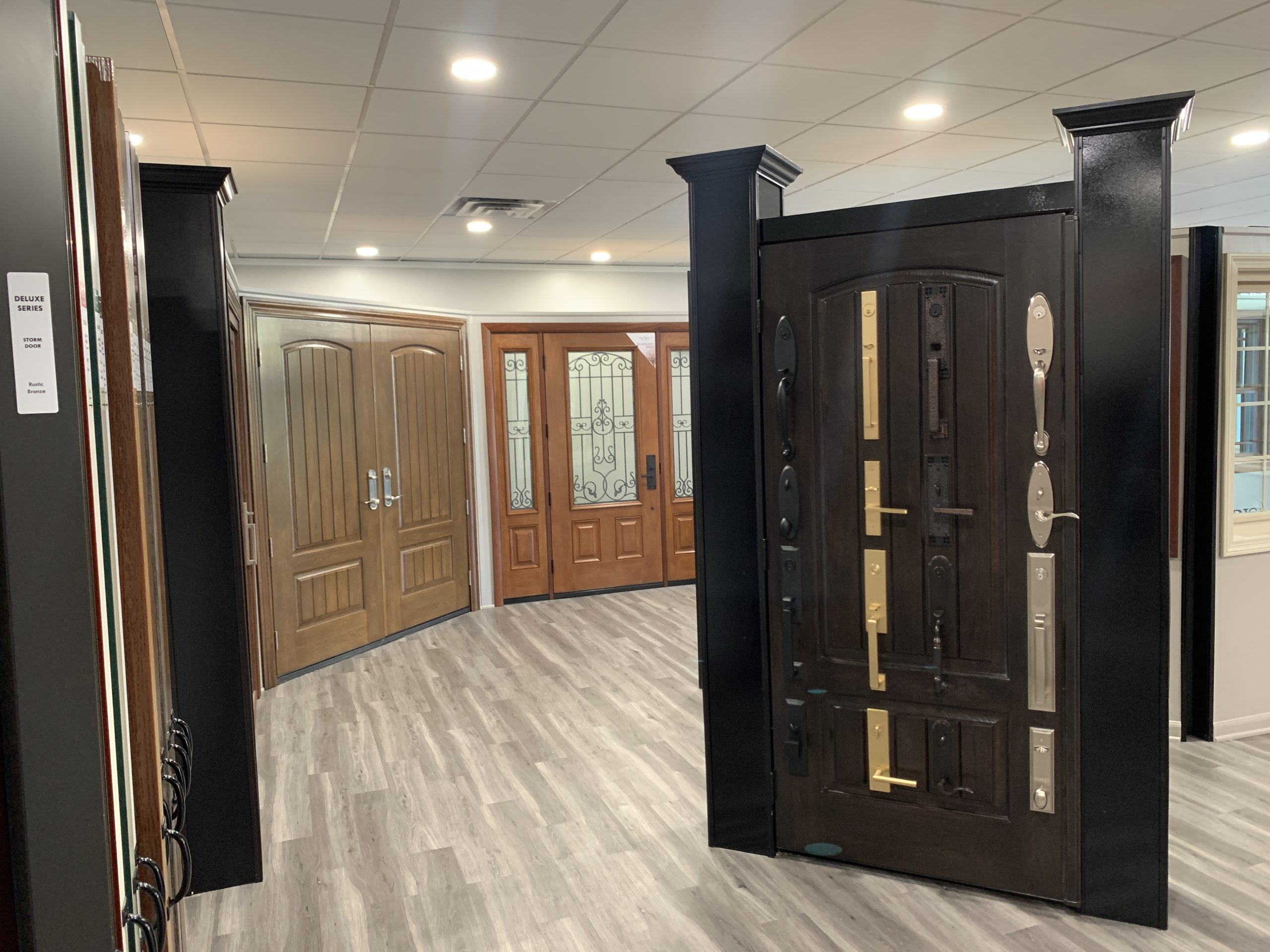
Want to see your options up close? Visit our Monroeville showroom to explore full-size door and decorative glass displays. Getting hands-on experience with finishes, glass, and hardware options help you achieve the exact look you want.
9. What Should I Ask a Pittsburgh Door Installer Before Hiring Them?
The best door won’t perform if it’s poorly installed, especially in older Pittsburgh homes with uneven openings. Ask:
- Are they local, certified, and insured?
- Do they specialize in older homes?
- Will they remove and dispose of the old door?
- What are their sealing materials and insulation process?
- How long does it take?
- Do they have a current state contractor’s number as required by law?
- Do they have liability insurance and worker’s compensation insurance to protect you?
Beware of quick turnaround promises; delays are a common bait-and-switch tactic.
Curious who will actually install your door? Learn the difference between employee vs. subcontracted installers.
10. What Warranty and Service Should I Expect After Installation?
Strong doors should come with a strong warranty. Read the fine print:
- Manufacturer warranty that covers the door slab, finish, glass, and hardware.
- Installer warranty that covers labor, sealing, and alignment.
- Ask about service responsiveness: will they return calls promptly if an issue arises now or years down the line? And who will be the one responding to service requests?
A strong warranty plus reliable aftercare ensures your investment is protected. Make sure you read and understand what the warranty really covers and to what extent.
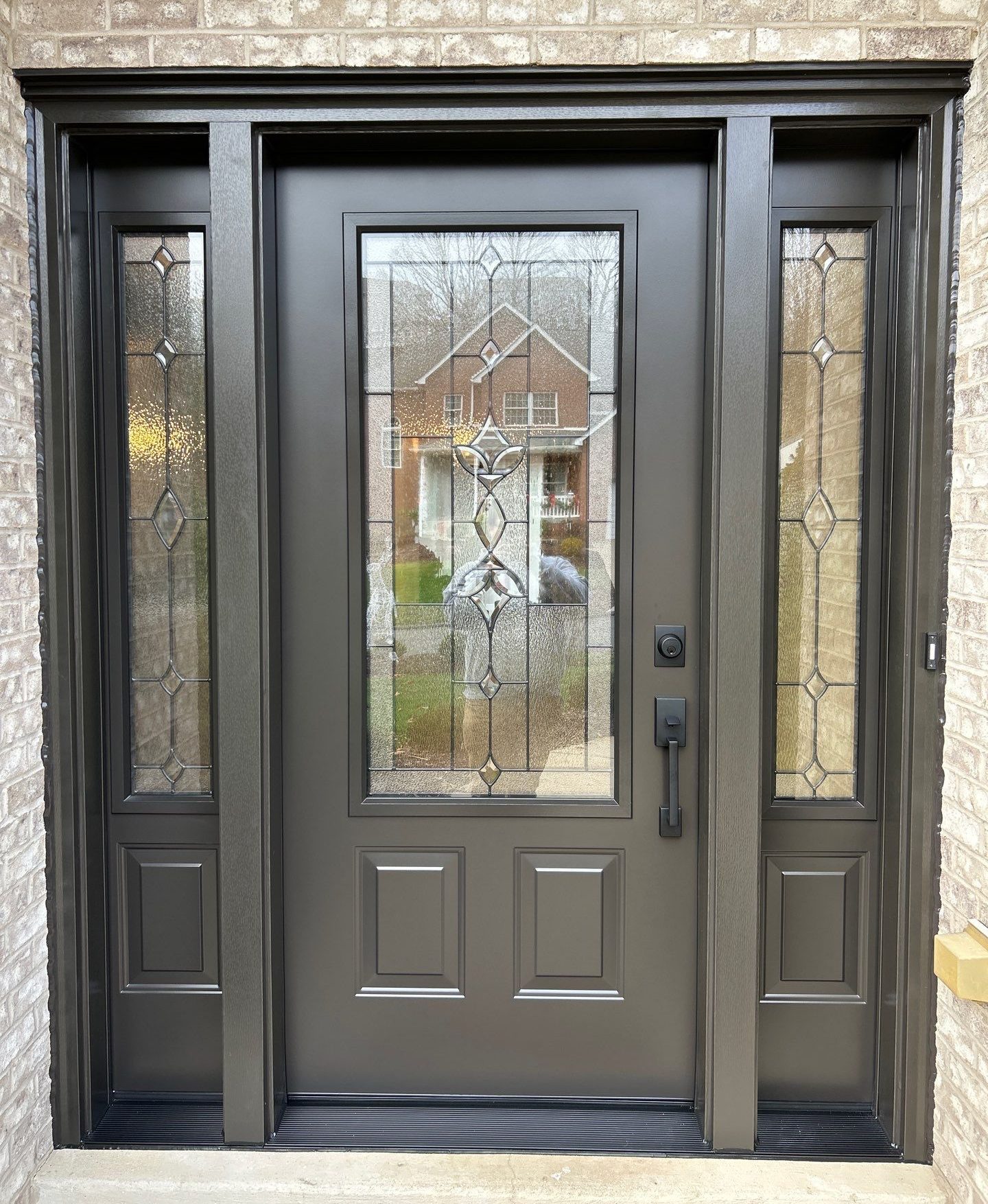
Ready to Choose a Door That Actually Fits Your Home?
A door might seem like a simple purchase until you realize how much it affects comfort, safety, and energy costs in a Pittsburgh home. These 10 questions will help you avoid missteps and choose a door that actually fits your lifestyle, needs and personality.
And if you’d like to see what your new door could look like before committing, Energy Swing offers digital previews of your actual home so you can visualize every option and make the confident choice.
Ready to explore options? Schedule your free, no-pressure consultation now.

